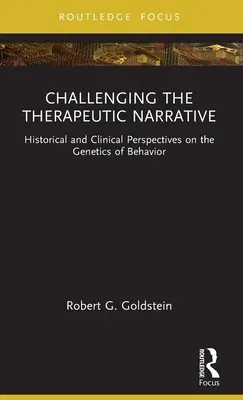This volume explores and challenges the assumption that behavioral
proclivities and pathologies are directly traceable to experience--an
assumption that still widely dominates folk psychology as well as the
perspective of many mental health practitioners. This tendency continues
despite powerful evidence from the field of behavioral genetics that
genetic endowment dwarfs other discrete influences on development and
psychopathology when extrinsic conditions are not extreme.
An interdisciplinary collection, the book uses historical, cultural and
clinical perspectives to challenge the longstanding notion of identity
as the product of a life-narrative. Although the nativist-empiricist
debate has been revivified by recent advances in molecular biology, such
ideas date back to the Socratic dialogue on the innate mathematical
sense possessed by an illiterate slave. The author takes a philosophical
and historical approach in revisiting the writings of select figures
from science, medicine, and literature whose insights into the potency
of inherited factors in behavior were particularly prescient, and ran
contrary to the modern declivity toward the self as narrative. The final
part of the volume uses historical and clinical perspectives to help
illuminate the elusive concept of innateness and highlights important
ramifications of the revolution in behavioral genetics.
Seeking to challenge the clinical utility of the therapeutic narrative
rather than the importance of experience per se, the book will
ultimately appeal to psychiatrists, psychologists, and academics from
various disciplines working across the fields of behavioral genetics,
evolutionary biology, philosophy of science, and the history of science.

